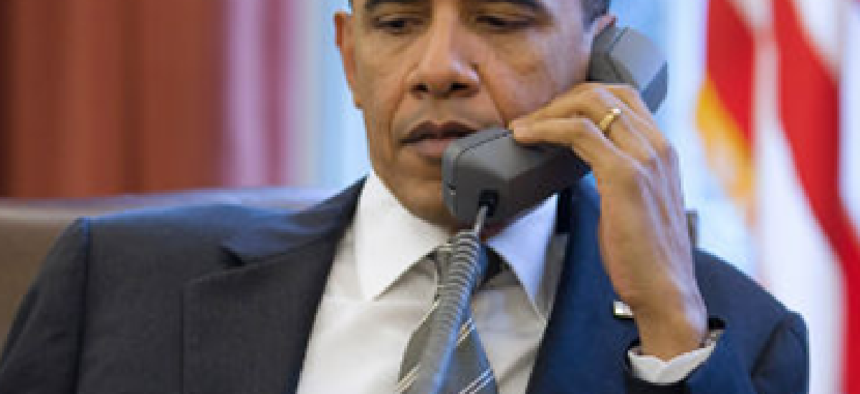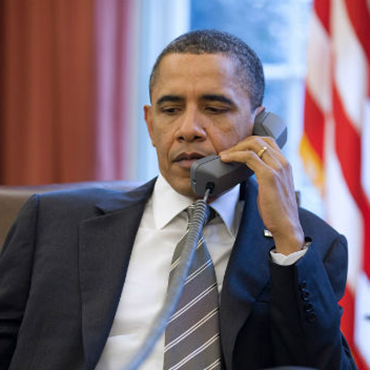Obama, Intel Committee leaders propose data collection changes

The president’s plan would require a court order to collect information on individual accounts; the lawmakers’ bill would not.

President Barack Obama proposed changes in bulk data collection while insisting that U.S. agencies have acted responsibly with the data they collected.
President Barack Obama and the leaders of the House Select Committee on Intelligence are offering separate but similar plans to end the bulk collection and storage of telephone metadata about U.S. citizens by the National Security Agency.
The administration plan, first reported in the New York Times, would end the bulk collection of telephone metadata into NSA databases. Instead, the NSA would need a court order to collect information on individual accounts, and would be able to get data on targeted accounts on an ongoing basis. There would be a mechanism for quickly getting data on the activity of phone numbers that were linked to targeted accounts. The government would not task phone companies with storing call records for longer than they ordinarily do -- typically about 18 months -- because of industry objections.
The highly classified program involving bulk collection of domestic telephone data was permitted under Section 215 of the Patriot Act, and news of its existence was leaked to the public by former NSA contractor Edward Snowden. However, the program is authorized in 90-day increments by the Foreign Intelligence Surveillance Court. The current authorization expires March 28, and the administration is reportedly seeking one further 90-day extension while Congress hashes out changes to the existing law.
“We have got to win back the trust not just of governments, but, more importantly, of ordinary citizens," said Obama, speaking March 25 at a press conference in Brussels. Obama acknowledged that the bulk collection and storage of data could lead to potential abuses in the future, although he said that U.S. agencies were acting responsibly with the data they collected.
Rep. Mike Rogers (R-Mich.) and Dutch Ruppersberger (D-Md.), the chairman and ranking member of the Intelligence Committee, also propose doing away with bulk collection. The bipartisan measure would prohibit the government from acquiring bulk phone records without specifying a target for collection. In addition to phone and Internet records, the bill also covers library records, tax records, gun sales lists, educational records, medical records and a few other areas.
Under Rogers-Ruppersberger, the government would not need a court order to access phone metadata. Instead, a "reasonable and articulable suspicion" that an individual is a foreign agent or connected with foreign powers is enough to justify collection. The government would still require a court order to intercept the content of communications. The sponsors indicated that the bill is compatible with existing NSA systems and workflow.
Evidence supporting government suspicions would be sent to a FISA court for review after the data request was made. If a court disagrees with the basis for a request, it could order metadata gathered under that request to be purged from government systems.
“We have a drastic, major change that will not put our country at risk,” Ruppersberger said at a March 25 news conference at which he and Rogers unveiled the bill.
“We believe this can be the solution for those of us who want to preserve important national security capabilities while heeding the legitimate concerns of many that the collection of bulk telephone metadata has a potential for abuse,” Rogers said.
The Intelligence Committee bill faces opposition from many in Congress who want more judicial oversight and more transparency in the program.
Rep. James Sensenbrenner (R-Wis.), whose competing USA Freedom Act would end warrantless collection of data, is not supporting the Rogers-Ruppersberger bill. He released a statement saying the measure "is a convoluted bill that accepts the administration’s deliberate misinterpretation of the law. It limits, but does not end, bulk collection. Provisions included in the draft fall well short of the safeguards" in his own legislation, he said.



